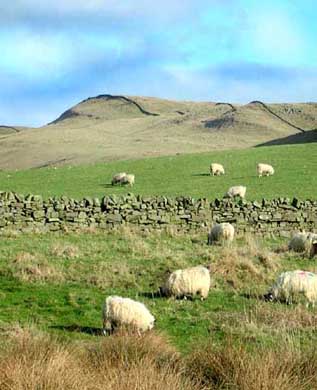The Green Revolution
October 16 was World Food Day, and this is world food weekend. The head of the UN food agency is quoted as saying "For the first time in history, more than one billion people are undernourished worldwide" and “one in every six persons in the world suffers from hunger every day." This means that roughly three times the population of America is now going hungry and is living under conditions of extreme poverty. This trend is not improving, rather it is getting worse with each passing year.
-
It is time to admit that an ever increasing population, which each year consumes more energy and needs more food, is not sustainable. It can be compared to the bubble-burst phenomenon. The focus has been on continuing to increase the supply of food through monoculture agriculture, large inputs of chemical fertilizers and pesticides/herbicides, genetically modified plants, and vast inputs of fossil fuels. These newly developed plants often have a higher yield, but generally require much more water than the traditionally grown varieties.
The Green Revolution meant well, of that I am certain. It also assured vast profits to those companies who make pesticides and genetically modified seeds. Unfortunately it encouraged world wide population growth to continue unchecked. We now can clearly see that it has turned out to be the wrong approach to dealing with the dreadful matter of hunger and famine.
When you combine an ever increasing supply of food with a drastically reduced infant mortality, unless you also include radically improved education, equality, and work-place opportunities for females (which reduce birth rates), you have created a situation which guarantees increasing poverty and starvation.
Each year the earth has more homo sapiens living on its surface who do not have enough food to eat, safe water to drink, flush toilets connected to sewage treatment plants, refrigerators to keep their food from rotting, or access to proper health care. To this one might add the problems that “advanced” societies suffer with: air and water which are polluted with a wide variety of industrial toxins, and food which contains hazardous pesticides, hormones, and antibiotics. Not to mention the increasing numbers of diseases which are no longer curable by antibiotics.
There also is the matter of cancer. Long term exposure to pesticides is correlated with higher cancer rates. Herbicide exposure is now linked to many types of lymphoma and leukemia, as well as breast, ovarian, and lung cancer
Rather than providing aid to poor countries in the form of tractors, chemical fertilizers, pesticides, and genetically modified seed stock we should be using our aid dollars to help build roads so that the farmer can get his produce to market. Schools, water wells, and irrigation projects are also generally wise ways to assist these poorer countries too.
-
-
-
-
-
--
-
-
-
-
--


























